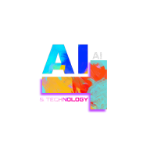How AI is Transforming Healthcare: Examples and Use Cases
The application of artificial intelligence (AI) in healthcare is transforming the sector by enhancing patient outcomes in terms of diagnosis and treatment. Healthcare has always been a data-intensive industry, and the enormous amounts of data produced every day can be difficult to manually manage and evaluate. Using AI, we can, nevertheless, draw valuable conclusions from this data and use them to enhance patient care. We will look at a few instances and application cases of how AI is changing healthcare in this blog article.
Disease identification and prognosis
Disease diagnosis and prediction is one of the most exciting uses of AI in healthcare. In order to find trends and provide precise diagnoses, machine learning algorithms may evaluate vast volumes of patient data, including medical history, genetic data, and environmental factors. For instance, Google's DeepMind has created an AI system that can, up to 48 hours in advance, anticipate how acute kidney damage (AKI) would progress, potentially saving the lives of patients.
The application of AI in radiography is another example. AI can examine medical pictures like X-rays, CT scans, and MRIs to find fractures and indicators of disease that human radiologists might miss, including tumors. AI can also improve efficiency, decrease diagnostic errors, and help radiologists prioritize urgent cases.
Drug development and research
Traditional medication research and discovery procedures are time-consuming, expensive, and frequently ineffective. But, by evaluating enormous datasets of chemical compounds and identifying those that are most likely to be successful, AI can help accelerate this process. Moreover, AI can assist in identifying potential adverse effects and interactions with other medications, enhancing patient safety.
For instance, the AI-driven drug development business Insilico Medical has created an AI system that can quickly produce unique compounds with specified features, like anti-cancer or anti-aging activities. AI can also be used to find existing medications that can be used to treat different diseases, such as using antiviral medications to treat COVID-19.
Individualized medicine
Additionally, AI can assist in customizing therapies for distinct patient traits like genetic make-up, way of life, and medical background. By avoiding unneeded treatments, this method, also known as personalized medicine, might enhance patient outcomes while lowering healthcare expenditures.
For instance, IBM's Watson for Genomics may examine the genetic information of a patient to find mutations that may be the cause of their cancer and recommend individualized treatment alternatives. In a similar vein, the startup Niramai has created a radiation-free AI-based breast cancer screening tool that is safer and more pleasant for patients and can find cancers as small as 3 mm.
Virtual assistants and chatbots
AI-powered virtual assistants and chatbots are becoming increasingly popular in healthcare as they can provide 24/7 support to patients, answer common questions, and even triage urgent cases. Moreover, virtual assistants can collect patient data, such as symptoms and vital signs, and relay them to healthcare professionals, which can help with diagnosis and treatment.
For instance, Babylon Health has developed an AI-powered chatbot that can diagnose common conditions, such as flu or allergies, based on a patient’s symptoms and medical history. The chatbot can also book appointments with healthcare professionals and even provide prescriptions in some cases.
Predictive analytics
Finally, AI can help healthcare organizations predict future trends and identify areas where resources should be allocated. Predictive analytics can analyze large datasets, such as hospital admissions, patient outcomes, and financial data, to identify patterns and predict future trends.
To aid with staffing and resource allocation, the National Health Service (NHS) in the UK has created a predictive analytics platform that can forecast hospital admissions up to six weeks in advance. Similar to this, the AI-based mental health screening tool developed by the firm Spring Health may identify individuals who are most likely to experience mental health disorders like depression or anxiety based on their medical history and other criteria. This can aid medical professionals in taking quick action and halting the progression of dangerous illnesses.
In conclusion, AI is revolutionizing healthcare in many ways, including drug development, personalized therapy, and the diagnosis and prediction of disease. Virtual assistants and chatbots that are AI-powered can also increase patient access to healthcare and offer round-the-clock help. Predictive analytics can also assist healthcare firms in resource allocation and data-driven decision-making. In the years to come, we may anticipate even more interesting advancements in healthcare as AI continues to improve. The privacy and safety of patients must be prioritized in all AI-powered healthcare advancements, though, in order to ensure that AI is used ethically and responsibly.








1 Comments
Hlo
ReplyDelete